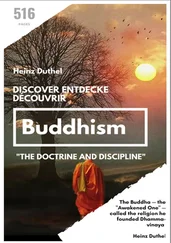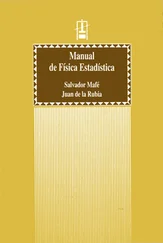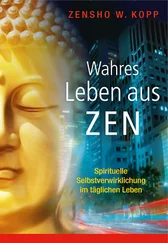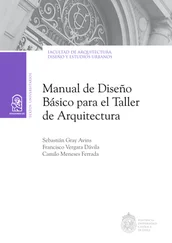Teitaro Suzuki - Manual of Zen Buddhism
Здесь есть возможность читать онлайн «Teitaro Suzuki - Manual of Zen Buddhism» весь текст электронной книги совершенно бесплатно (целиком полную версию без сокращений). В некоторых случаях можно слушать аудио, скачать через торрент в формате fb2 и присутствует краткое содержание. Жанр: Религиоведение, Религия, Руководства, на английском языке. Описание произведения, (предисловие) а так же отзывы посетителей доступны на портале библиотеки ЛибКат.
- Название:Manual of Zen Buddhism
- Автор:
- Жанр:
- Год:неизвестен
- ISBN:нет данных
- Рейтинг книги:3 / 5. Голосов: 1
-
Избранное:Добавить в избранное
- Отзывы:
-
Ваша оценка:
- 60
- 1
- 2
- 3
- 4
- 5
Manual of Zen Buddhism: краткое содержание, описание и аннотация
Предлагаем к чтению аннотацию, описание, краткое содержание или предисловие (зависит от того, что написал сам автор книги «Manual of Zen Buddhism»). Если вы не нашли необходимую информацию о книге — напишите в комментариях, мы постараемся отыскать её.
Manual of Zen Buddhism — читать онлайн бесплатно полную книгу (весь текст) целиком
Ниже представлен текст книги, разбитый по страницам. Система сохранения места последней прочитанной страницы, позволяет с удобством читать онлайн бесплатно книгу «Manual of Zen Buddhism», без необходимости каждый раз заново искать на чём Вы остановились. Поставьте закладку, и сможете в любой момент перейти на страницу, на которой закончили чтение.
Интервал:
Закладка:
Subhuti said to the Buddha: “World-honoured One, there is nothing about which the Tathagata preaches.”
“Subhuti, what do you think? Are there many particles of dust in the three thousand chiliocosms?”
Subhuti said: “Indeed, there are many, World-honoured One.”
“Subhuti, the Tathagata teaches that all these many particles of dust are no-particles of dust and therefore that they are called particles of dust; he teaches that the world is no-world and therefore that the world is called the world.
“Subhuti, what do you think? Is the Tathagata to be recognized by the thirty-two marks [of a great man]?”
“No, World-honoured One, he is not.”
“The Tathagata is not to be recognized by the thirty-two marks, because what are said to be the thirty-two marks are told by the Tathagata to be no-marks and therefore to the thirty-two marks. Subhuti, if there be a good man or a good woman who gives away his or her lives as many as the sands of the Ganga, his or her merit thus gained does not exceed that of one who, holding even one gatha of four lines from this sutra, preaches them for others.”
14. At that time Subhuti, listening to this sutra, had a deep understanding of its signification, and, filled with tears of gratitude, said this to the Buddha: “Wonderful, indeed, World-honoured One, that the Buddha teaches us this sutra full of deep sense. Such a sutra has never been heard by me even with an eye of wisdom acquired in my past lives. World-honoured One, if there be a man who listening to this sutra acquires a pure believing heart he will then have a true idea of things. This one is to be known as having achieved a most wonderful virtue. World-honoured One, what is known as a true idea is no-idea, and for this reason it is called a true idea.
“World-honoured One, it is not difficult for me to believe, to understand, and to hold this sutra to which I have now listened; but in the ages to come, in the next five hundred years, if there are beings who listening to this sutra are able to believe, to understand, and to hold it, they will indeed be most wonderful beings. Why? Because they will have no idea of an ego, of a person, of a being, or of a soul. For what reason? The idea of an ego is no-idea [of ego], the idea of a person, a being, or a soul is no-idea [of a person, a being, or a soul]. For what reason? They are Buddhas who are free from all kinds of ideas.”
The Buddha said to Subhuti, “It is just as you say. If there be a man who, listening to this sutra, is neither frightened nor alarmed nor disturbed, you should know him as a wonderful person. Why? Subhuti, it is taught by the Tathagata that the first Paramita is no-first-Paramita and therefore it is called the first Paramita. Subhuti, the Paramita of humility (patience) is said by the Tathagata to be no-Paramita of humility, and therefore it is the Paramita of humility. Why? Subhuti, anciently, when my body was cut to pieces by the King of Kalinga, I had neither the idea of an ego, nor the idea of a person, nor the idea of a being, nor the idea of a soul. Why? When at that time my body was dismembered, limb after limb, joint after joint, if I had the idea either of an ego, or of a person, or of a being, or a soul, the feeling of anger and ill-will would have been awakened in me. Subhuti, I remember, in my past five hundred births, I was a rishi called Kshanti, and during those times I had neither the idea of an ego, nor that of a person, nor that of a being, nor that of a soul.
“Therefore, Subhuti, you should, detaching yourself from all ideas, rouse the desire for the supreme enlightenment. You should cherish thoughts without dwelling on form, you should cherish thoughts without dwelling on sound, odour, taste, touch, or quality. Whatever thoughts you may have, they are not to dwell on anything. If a thought dwells on anything, this is said to be no-dwelling. Therefore, the Buddha teaches that a Bodhisattva is not to practise charity by dwelling on form. Subhuti, the reason he practises charity is to benefit all beings.
“The Tathagata teaches that all ideas are no-ideas, and again that all beings are no-beings. Subhuti, the Tathagata is the one who speaks what is true, the one who speaks what is real, the one whose words are as they are, the one who does not speak falsehood, the one who does not speak equivocally.
“Subhuti, in the Dharma attained by the Tathagata there is neither truth nor falsehood. Subhuti, if a Bodhisattva should practise charity, cherishing a thought which dwells on the Dharma he is like unto a person who enters the darkness, he sees nothing. If he should practise charity without cherishing a thought that dwells on the Dharma, he is like unto a person with eyes, he sees all kinds of forms illumined by the sunlight.
“Subhuti, if there are good men and good women in the time to come who hold and recite this sutra, they will be seen and recognized by the Tathagata with his Buddha-knowledge, and they will all mature immeasurable and innumerable merit.
15. “Subhuti, if there is a good man or a good woman who would in the first part of the day sacrifice as many bodies of his or hers as the sands of the Ganga, and again in the middle part of the day sacrifice as many bodies of his or hers as the sands of the Ganga, and again in the latter part of the day sacrifice as many bodies of his or hers as the sands of the Ganga, and keep up these sacrifices through hundred-thousands of myriads of kotis of kalpas; and if there were another who listening to this sutra would accept it with a believing heart, the merit the latter would acquire would far exceed that of the former. How much more the merit of one who would copy, hold, learn, and recite and expound it for others!
“Subhuti, to sum up, there is in this sutra a mass of merit, immeasurable, innumerable, and incomprehensible. The Tathagata has preached this for those who were awakened in the Mahayana (great vehicle), he has preached it for those who were awakened in the Sreshthayana (highest Vehicle). If there were beings who would hold and learn and expound it for others, they would all be known to the Tathagata and recognized by him, and acquire merit which is unmeasured, immeasurable, innumerable, and incomprehensible. Such beings are known to be carrying the supreme enlightenment attained by the Tathagata. Why? Subhuti, those who desire inferior doctrines are attached to the idea of an ego, a person, a being, and a soul. They are unable to hear, hold, learn, recite, and for others expound this sutra. Subhuti, wherever this sutra is preserved, there all beings, including Devas and Asuras, will come and worship it. This place will have to be known as a chaitya, the object of worship and obeisance, where the devotees gather around, scatter flowers, and burn incense.
16. “Again, Subhuti, there are some good men and good women who will be despised for their holding and reciting this sutra. This is due to their previous evil karma for the reason of which they were to fall into the evil paths of existence; but because of their being despised in the present life, whatever evil karma they produced in their previous lives will be thereby destroyed, and they will be able to attain the supreme enlightenment.
“Subhuti, as I remember, in my past lives innumerable asamkhyeya kalpas ago I was with Dipankara Buddha, and at that time I saw Buddhas as many as eighty-four hundred. thousands of myriads of nayutas and made offerings to them and respectfully served them all, and not one of them was passed by me.
“If again in the last [five hundred] years, there have been people who hold and recite and learn this sutra, the merit they thus attain [would be beyond calculation], for when this is compared with the merit I have attained by serving all the Buddhas, the latter will not exceed one hundredth part of the former, no, not one hundred thousand ten millionth part. No, it is indeed beyond calculation, beyond analogy.
Читать дальшеИнтервал:
Закладка:
Похожие книги на «Manual of Zen Buddhism»
Представляем Вашему вниманию похожие книги на «Manual of Zen Buddhism» списком для выбора. Мы отобрали схожую по названию и смыслу литературу в надежде предоставить читателям больше вариантов отыскать новые, интересные, ещё непрочитанные произведения.
Обсуждение, отзывы о книге «Manual of Zen Buddhism» и просто собственные мнения читателей. Оставьте ваши комментарии, напишите, что Вы думаете о произведении, его смысле или главных героях. Укажите что конкретно понравилось, а что нет, и почему Вы так считаете.








